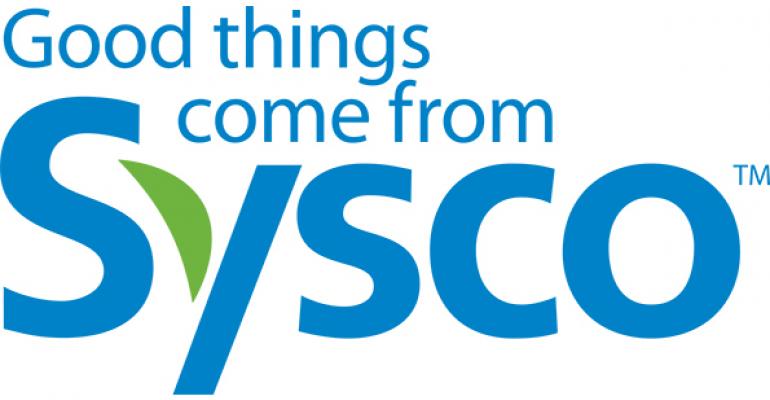A high-powered team of some of the top antitrust litigators in the country has launched a vigorous defense on behalf of Sysco Corp. of the proposed $8.2 billion merger between the foodservice distribution giant and US Foods.
The defense will hinge in part on the apparent disagreement within the Federal Trade Commission’s five commissioners, which issued a rare, split vote in favor of blocking the merger. The vote was 3-2, and the FTC sued to block the deal on Thursday.
“Two of those commissioners could find no — zero — reason to believe this transaction is anticompetitive,” said Richard Parker, an attorney with O’Melveny & Myers, who has worked on numerous antitrust cases and is an antitrust attorney for Sysco. He is also a former director of the Bureau of Competition at the FTC.
The commission sued to block the merger in an administrative court, but it is also seeking a preliminary injunction to keep the deal on hold, pending that action, in a U.S. District court in the District of Columbia.
The injunction will be decided on in the next 60 to 90 days, and will likely include a trial. The FTC will likely drop its case if Sysco wins the trial, Parker said. That makes the injunction the primary fight in the antitrust case.
Parker said Sysco aims to take the case to trial, but added, “our doors are always open if the FTC intends to talk.”
The decision on the merger will ultimately come down to the complexity of the U.S. market for food distribution and the potential impact of the merger itself. On one hand, the two companies are the only national distributors of a broad range of food products. On the other, there are numerous places where restaurants and others can buy food.
“I think the market is saturated” with distributors, said Debra Bachar, president of the Blueberry Business Group, a foodservice consulting firm. “And with saturation comes inefficiency.”
Bachar added that many regional distributors have been gaining share in the 14 months since the merger was announced. She believes those distributors are taking advantage, with Sysco and US Foods distracted by the potential merger.
In its lawsuit, the FTC argued that the merger would create a single company with 75 percent of the national broadline distribution market. Combined, the agency said the two would have 133 distribution centers, compared with 24 for the next largest, Performance Food Group.
It also argued that a combined Sysco–US Foods would dominate numerous markets, and would have more than half the market share in 32 local markets.
That includes 100 percent of the market in San Diego and 93 percent in Las Vegas. Those are among 11 markets where Sysco and US Foods are proposing to sell facilities to Performance Food Group, should the merger receive the ultimate go-ahead.
However, attorneys for the two companies argue that there are numerous competitors, and that the deal would ultimately improve competition by helping the combined company reduce prices. The combination would enable the companies to save $600 million a year that will be passed to consumers.
They argue that there is no national market for broadline distribution. “Food in this country is distributed in local markets,” Parker said. “If you are in Chicago and you need food delivered, you can look at broadline suppliers, local suppliers. There is no national market. It is pure mythology.”
'A recipe for competition'
(Continued from page 1)
Parker also said all local markets are “fiercely competitive.” And Performance Food Group would be “fortified” — and a much tougher competitor — with a greater footprint and ability to compete because it would get those 11 facilities and their nearly $5 billion in sales.
“That is a recipe for competition,” he said. “That’s why we say we proceed to court with confidence this transaction is pro competitive.”
There is also disagreement about the impact of “cash-and-carry” retailers like Restaurant Depot and others on the foodservice market. Damian Didden, an antitrust attorney for Sysco with Wachtell, Lipton, Rosen & Katz, noted that the retailer is a big resource for independent restaurant companies to get their food and supplies.
“Restaurant Depot sells about $6 billion a year to restaurants,” Didden said. “It sells food, equipment, everything. Who does Restaurant Depot compete with if not for Sysco and US Foods?”
In its lawsuit, the FTC suggested that those retailers are not interchangeable with companies like Sysco and are not a substitute for broadline distribution services. That’s because most cash-and-carry stores don’t deliver, the commission said. “Customers have to shop for and transport the food themselves, which is resource intensive and impracticable for most customers,” the lawsuit said.
There’s also a question on the fierceness of the competition between the two companies. The FTC says Sysco and US Foods are often the first and second choice for national customers. And for many customers, they are the only two bidders.
The two companies “frequently respond to competing bids or offers from the other by lowering prices to customers,” the commission said. The lawsuit referred to numerous instances in which the two competed heavily to win business from foodservice customers.
But Sysco attorneys argued that’s not a reason for the lawsuit. “The fact that Sysco and US Foods are competitors is not a reason for an antitrust action,” Didden said, suggesting that there would be no merger of any company if two competitors couldn’t merge.
Contact Jonathan Maze at [email protected].
Follow him on Twitter: @jonathanmaze




